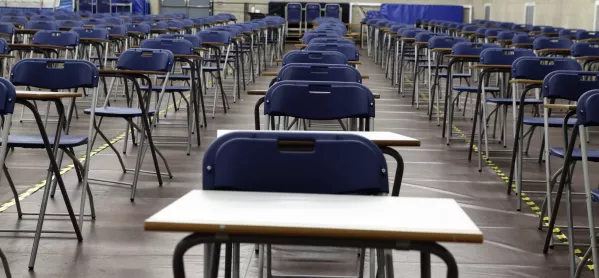The move to linear exams in England has not made teachers more likely to limit their pupils’ chances by persuading them to take foundation papers as a “safer” option, a new study suggests.
There had been fears that the move from a modular to a linear exam system - and the resultant decline in resit opportunities - would mean pupils would be encouraged to go for easier foundation-tier papers, rather than the tougher higher-tier papers needed for top grades.
But research by Cambridge Assessment found that across six GCSE specifications - two in science, French, Spanish and two in maths - pupils were in most cases less likely to take foundation papers under the current linear system, where all exams are taken at the end of two-year courses, compared with the pre-reform modular system.
The researchers investigated whether “greater perceived risk with linear assessment, due to reduced opportunities for resits and an increased exam load for students” had resulted in teachers becoming more “risk-averse” and pushing their students to take foundation papers as a “safer” option.
They looked at GCSE specifications offered by the OCR exam board, analysing entries to the foundation and higher tier in June 2013, the last year of the old modular system, and June 2014, the first year of the linear system.
According to their research paper: “The move to linear assessment was associated with a reduction in students’ likelihood of being entered for foundation tier for GCSEs in science and languages, but an increase in students’ likelihood of being entered for foundation tier for one of the two mathematics specifications.
“Overall, the findings suggest that linear assessment does not inevitably lead to more cautious tiering decisions.
“For most GCSEs analysed in this study, students were, on average, significantly less likely to have taken the foundation tier under the linear system than under the modular system, after controlling for the characteristics of the students.”
The researchers said it was possible that fewer students may have been entered for the foundation tier because the decision process about which paper to take is “lengthened” under a linear system, “which may lead to a different evaluation of which tier is most appropriate”.
“Alternatively, it is possible that the linear assessment structure may be perceived as helping to enhance student understanding of the subject, since it requires students to learn content over two years; this may make students better prepared to take the higher tier.”
The researchers suggest that maths might have bucked the trend, with teachers behaving more cautiously under the linear assessments because it is a subject that has “large consequences for school accountability measures”.
The findings conflict with previous research that suggested that moving from modular to linear assessment might increase the likelihood that students are entered for foundation-tier GCSEs.




